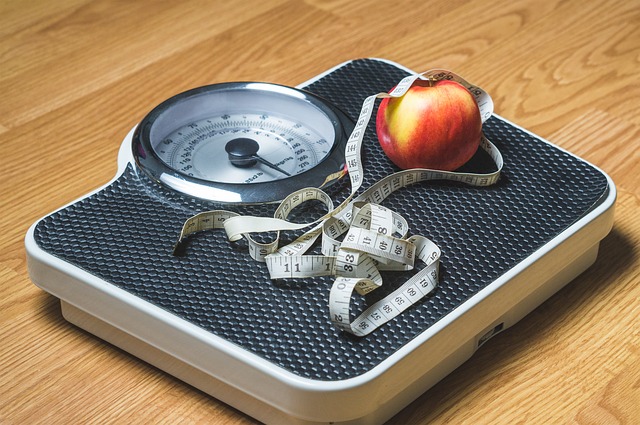Sally Estlin and I discuss why Diet’s Don’t Deliver! There are so many more people who are overweight in today’s society. Most start a diet because of poor body image or health reasons. Weight loss from dieting usually isn’t sustainable. Some 95% don’t work and participants regain the weight and more within five years. An important topic given the escalating social, emotional and economic costs of an overweight world.
Fatter and wanting to lose weight faster
- People are getting fatter (and it’s not those who are naturally thin)

- 1/5 in the UK are on a diet
- 60% American want to lose weight, only 1/3 bother
- 13% of Australian’s are on a diet [7]
- Weight loss industry forecast US$200bn by 2019
Common reasons to go on a diet
- Lose weight, and then …
- Improve mood and self-esteem
- increased mobility and energy
- Improve “health status” – blood pressure, triglycerides and cholesterol
- Reduce the risk of diabetes and heart disease
There are many more than 67 Diet varieties
With over 30,000 diet books to choose from, take your pick from the sample of diets below
- Alkaline
- Atkins (new and old)
- Beverly Hills Diet
- Blood type
- Body for Life
- Calorie restriction
- Cambridge
- Cookie Diet
- Dukan
- Eat-Clean
- Fit for Life
- Flexitarian
- Fruitarian
- High protein
- ITG or Ideal Protein
- Intermittent Fasting
- Ketogenic
- Lacto-Ovo Vegetarianism
- Locavore
- Low Carb, Low Fat, Low GI, Low Salt
- Macrobiotic
- Mediterranean
- Okinawa
- Ornish
- Paleo
- Pescetarian
- Raw food
- South Beach
- Vegan
- Vegetarian
- Weight watchers
- Zone
Causes of Obesity
The explosion in obesity cannot simply be explained calories in and out or fat intake. Rather the evidence suggests other factors are causal
- The popularity of low-fat foods has lifted sugar consumption, sugar and carbohydrates make you fat.
- Broad-spectrum antibiotics in early childhood lift the risk of obesity by 11+% [1, p244].
- Antibiotics are increasingly embedded in the foods and water we consume and they are difficult to avoid. Reverse osmosis is the only way I know to filter antibiotics out of drinking water.
- Animal studies show that tiny regular antibiotic doses in childhood alter gut microbes. This increases the hormones associated with obesity – leptin, and PYY. [5]
- Twin studies have shown that those “with genes for obesity also have the genes which make them less likely to exercise” [1, p25]
- But, “Gut microbes predict obesity better than genes” [1, p18]
- Western populations have reduced dietary fat but continue to add weight. So fat doesn’t make you fat. But carbohydrates, sugar, and sweeteners like High Fructose Corn Syrup undoubtedly do. Those with obesity genes double their risk of obesity with just one soft drink a day [6]
- Adverse childhood experiences [10]
- Adolescent girls who diet triple their risk of obesity
Why diets and exercise usually fail to deliver lasting weight loss [12]
- Exercise alone won’t reduce weight because your metabolism compensates [3, 4]. Dieting is a raises the levels of stress hormones and adrenaline. This causes you to burn calories slower by putting your body into a starvation mode.
- While you may lose weight while you are dieting. Some 95% will experience a weight rebound 1-5 years later. [8] Less than 10 % of those who diet maintain any lose weight loss for a year. [11]
- Dieting can lead to an eating disorder if you get fanatical on the scales
My top tips to lose weight, without dieting
- Resolve to lose weight
- Realise that diets don’t work
- Rebuild your lifestyle with a combination of better food, regular movement. Also less stress and address any hormonal and metabolic issues
- There may be a metabolic advantage in a diet higher in protein and fat and lower in carbohydrates. Research suggests that unrestricted low carbs diets are more likely to reduce weight [2]. But this needs to be a sustained effort.
If you would like to take the next step with Harry Armytage, complete the listening scorecard here
To find out more about what Sally Estlin does, head here
References and recommended reading
[1] Tim Spector, The Diet Myth – the real science behind the food we eat, Orion Books, 2015 [2] John Briffa, Escape the diet trap – lose weight without calorie counting, extensive exercise or hunger, Fourth estate, 2012 [3] Strasser, B. Physical activity in obesity and metabolic syndrome, Ann NY Acad Sc April 2013 [4] Dombrowski S. Long-term maintenance of weight loss with non-surgical interventions in obese adults: systematic review and meta-analysis of randomised controlled trials, BMJ May 2014. [5] Blaser, M. Missing Microbes, Henry Holt, 2014. [6] Qi, Q. Sugar-sweetened beverages and genetic risk of obesity, NEJM, Oct 2012. [7] ABS Australian Health Survey: – Foods and Nutrients, 2011-12 [8] National Eating Disorder Information Center (NEDIC) website [9] Stice et al. Naturalistic weight-reduction efforts prospectively predict growth in relative weight and onset of obesity among female adolescents, J Consult Clin Psychol. 1999 Dec;67(6):967-74. [10] Wylie, Mary Sykes, As the Twig is Bent, The Psychotherapy Networker, Sept/Oct 2010. [11] Mark Hyman, Why fat doesn’t make you fat, https://drhyman.com/blog/2016/01/08/why-fat-doesnt-make-you-fat/ [12] Robert Lustig, Fat Chance, the hidden truth about sugar, obesity and disease, Fourth Estate, 2014

